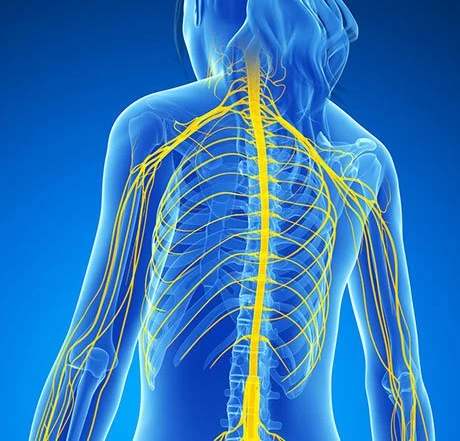Of all the things I’ve lost, I miss my brain the most.
Concern over loss of brain function seems to increase as we age, but research is showing that decreased brain function can even happen to young children if certain factors are in place.
Is this another hole-in-the-dam we need to plug? Absolutely. Like most problems, the causes are related to other things. Solve one or two, and a whole host of problems can be avoided.
Today, I want to shine a light on BDNF, (Brain-Derived Neurotropic Factor), whose presence is a key player in excellent brain function, and helps our peripheral nervous system, (AKA the nerves of our body outside of the brain itself). BDNF is a protein found in the brain that helps to ward off brain cell death and promotes the growth and development of new brain cells – along with their thousands of connections to other nerve cells.
Decreased levels of BDNF are associated with Alzheimer’s, premature aging, poor brain functioning, obesity, depression, and mental diseases.
Knowing ways to increase levels of BDNF in our brains just might be the impetus to tweaking some health habits. There’s nothing like motivation. Thing is, the answers to how to increase BDNF are not new, but the seriousness of being low on BDNF just might be the swift kick we need to make some changes. I know I am.
Here’s why.
After reading this: 8 Ways To Increase BDNF Levels (Brain-Derived Neurotrophic Factor) – Mental Health Daily, and this: Brain-Derived Neurotrophic Factor, Depression, and Physical Activity: Making the Neuroplastic Connection – PubMed (nih.gov) – I am more committed than ever to exercise, (Yes, I will be returning to the gym to augment my home routines), to maintaining a healthy weight, and to increase social interaction.
Let me summarize several findings:
Intense Exercise is a crucial tool to increase/restore levels of BDNF, and obviously, has other benefits as well: Increased circulation to the brain, improved heart function, release of happy hormones, improved muscle and joint function, and … hello … helps with control of weight. A single trip to the gym to raise your heart rate one time, won’t tide you over for a month. Consistent effort with 30 minutes of aerobic exercise several times a week will do the job – over time.
Since pulling back from gyms during COVID, I had not returned. Simply relying on my home routine of daily planks, (I’m up to 7 minutes a day), using free weights, and walking has not been enough to boost my brain health or mood. Elliptical machine, here I come!
Intermittent Fasting (IF)/Caloric Restriction have been found to improve not only brain health, BDNF levels, but also heart function and better regulation of glucose levels. There will be a post about IF (Intermittent Fasting) soon. IF is when the fast of the night is extended into the late morning. More on this later.
Saying goodbye to refined sugar and saturated fat will also play a big role in not only raising BDNF levels, but in weight control and glucose regulation. Cutting back on sugar can be problematic because it really is addictive. As I stated on page 121 of, Toolkit for Wellness, sugar actually lights up the opiate receptors in our brains. If you haven’t done so already, start cutting down on sugars little by little; once you ultimately break free of the addiction, sweet things will not be calling you like sirens from the deep. Sugary foods will taste too sweet to be pleasurable – a smaller portion of any sugary treat will more than do the job.
Regarding saturated fat, keep fat selections to modest amounts of less refined good fats – including olive oil, avocado, nuts, and seeds.
Sunlight is another booster to BDNF. Studies are showing that BDNF rises and dips according to seasons and levels of ambient light.
Supplements to consider that raise BDNF production include curcumin, green tea, omega-3 fatty acids, and resveratrol.
Losing weight at any age will assist in increasing the production of BDNF. The nationwide trend of obesity in the young is startling, not only because it’s the first domino to fall toward diabetes, heart disease, and stroke, but because the developing brains of obese children are low in BDNF. Now, it may be a case of the chicken and the egg with childhood obesity and BDNF – they correlate with each other, but addressing the trifecta of sugar/fat consumption, decreased exercise, and lack of social interaction, (next on the list), will go a long way to improved brain health.
Being socially engaged has been an issue during COVID, to be sure. It wasn’t just in our heads … although, really it was … that our brain functions were sluggish and low during our isolation because the BDNF levels were, too. Yes. We are social creatures and it’s no coincidence we are feeling mentally refreshed as we take our vaccinated selves back into the world of smiling faces.
Here’s to increasing levels of BDNF to boost our brain health for life. I’m returning to the gym with my exercise buddy tomorrow, who is also in Noom. Weight mastery, exercise, and social interaction – what could be better?
In health and BDNF –
Deidre
As always, if this article was useful to you, please pass it on by clicking on the MORE key below to share on a multiple of platforms.













